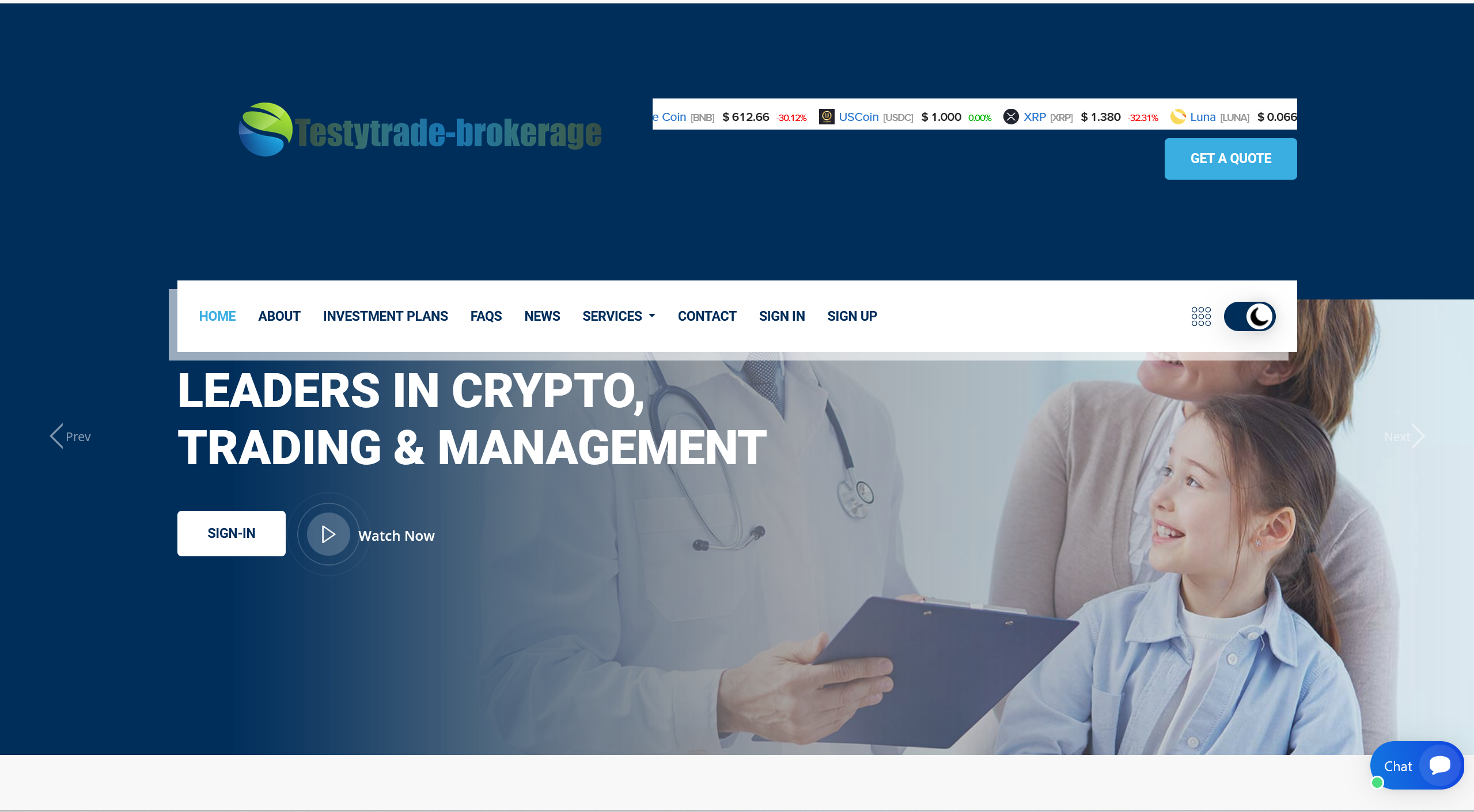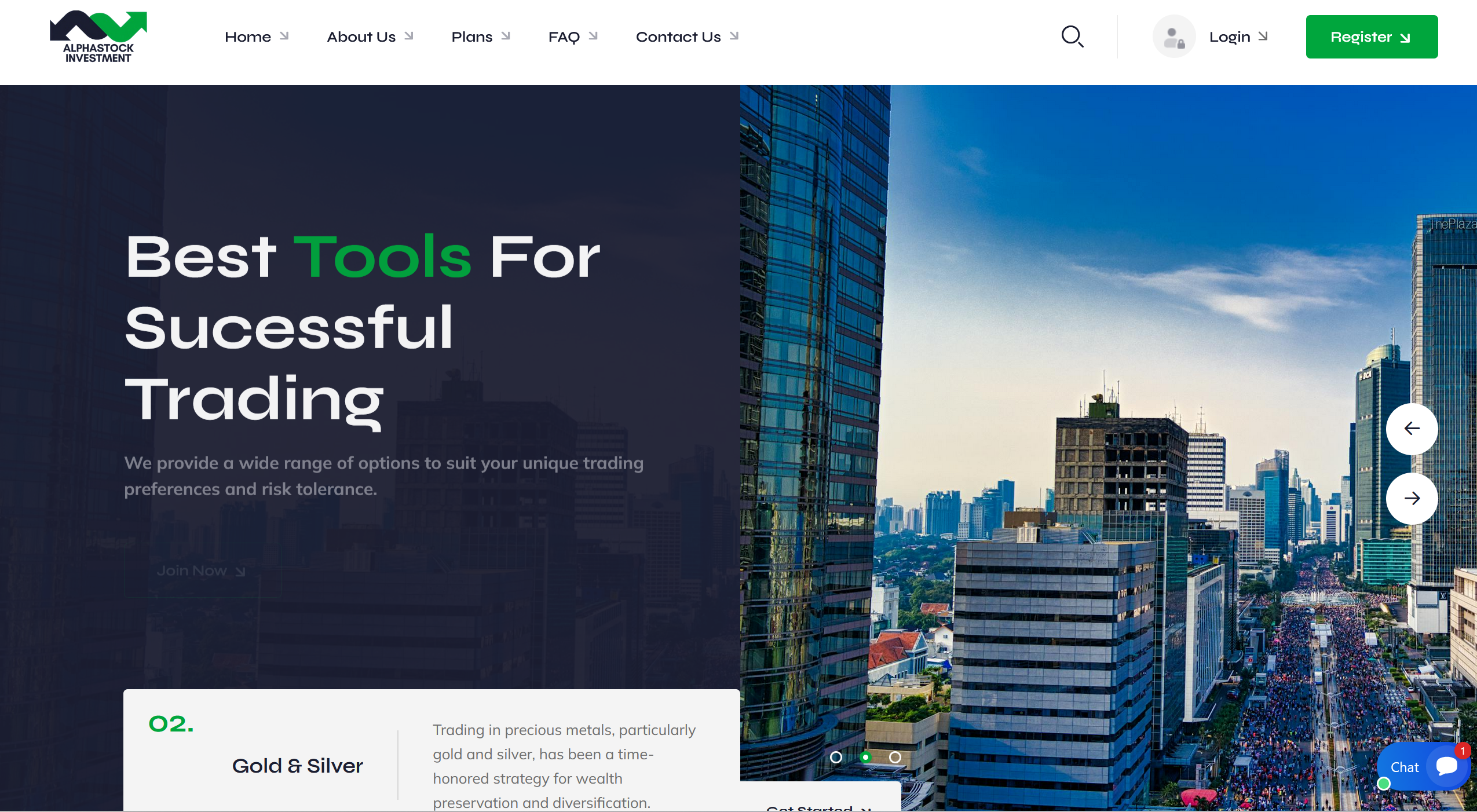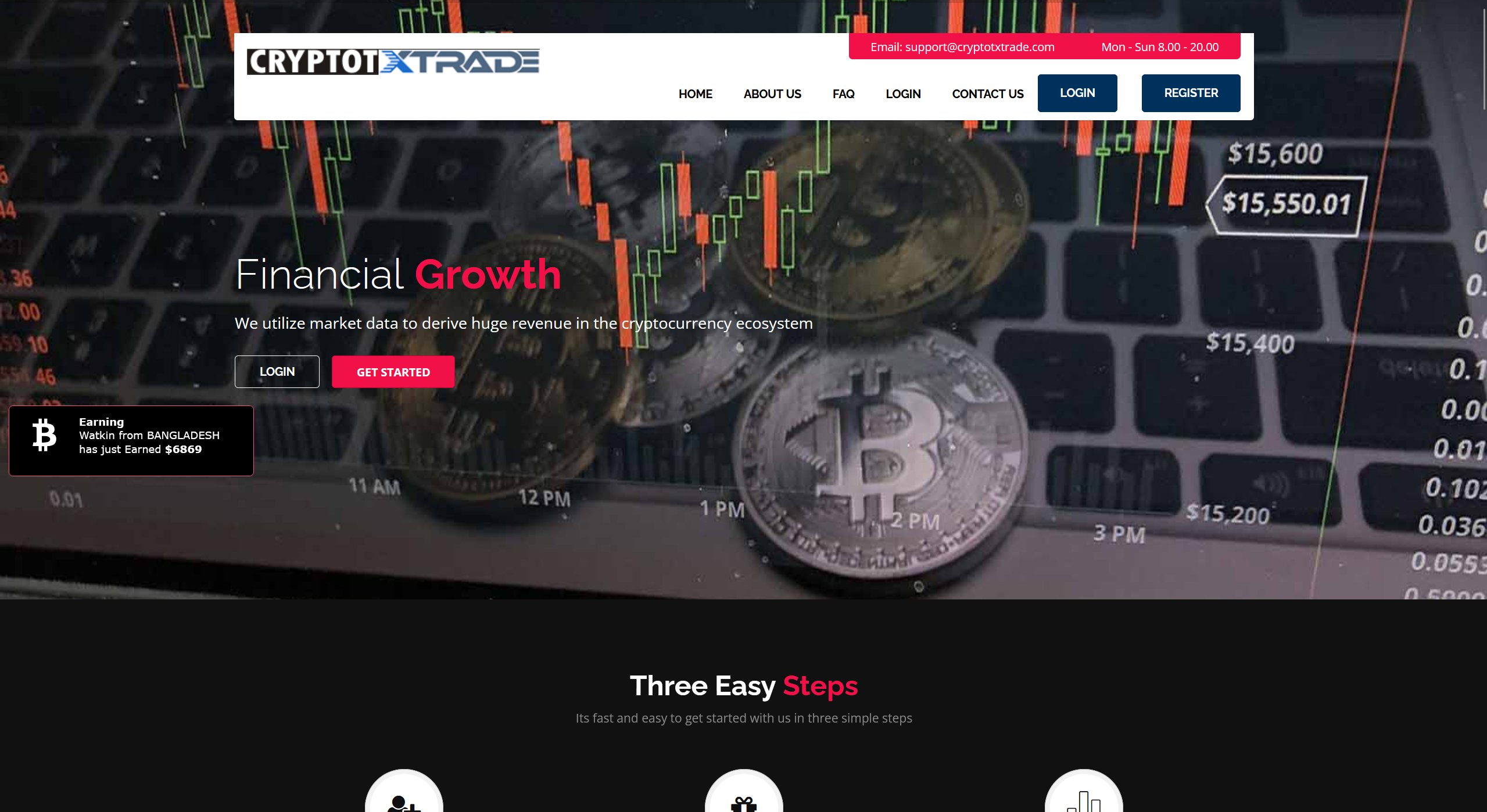1. Warning: Operating Without Authorization
One of the clearest evidence against OptimalTrade, operating under the domain optimaltrd.org, is that the UK’s Financial Conduct Authority (FCA) has issued an official public warning about it. The FCA states the firm “may be providing or promoting financial services or products without our permission.” It explicitly warns the public to avoid dealings with this firm.
This is more than just a caution it is a formal regulatory alert that OptimalTrade is not authorized to carry out financial services in the UK. That means UK consumers have no regulatory recourse if something goes wrong.
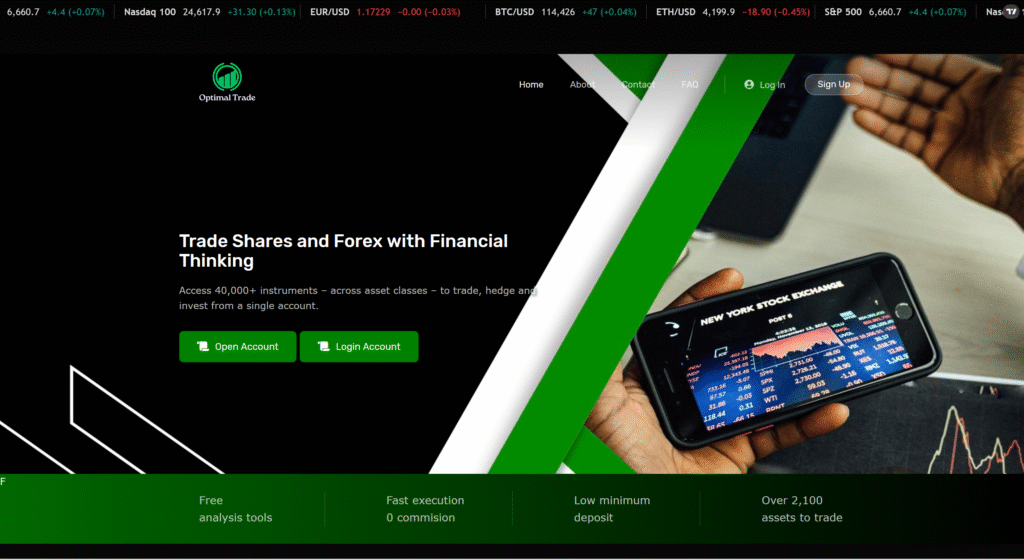
2. No Access to Compensation or Ombudsman Services
Because OptimalTrade is not regulated by the FCA, customers dealing with it lose fundamental protections. The FCA warning makes clear that if you deal with this firm, you won’t have access to the Financial Ombudsman Service, and you also won’t be protected by the Financial Services Compensation Scheme (FSCS) if the firm fails or acts improperly.
In other words: even if the firm promises guarantees, there is no legal safety net behind them. Your money could vanish with no fallback.
3. Suspicious Address & Contact Information
The FCA warning provides the following purported address for OptimalTrade: 55-61 High St, Eltham, UNITED KINGDOM, SE9 1TD.
However, the FCA also cautions that firms appearing on its warning list often supply incorrect or misleading contact details. Addresses, phone numbers, or emails may belong to other companies or be intentionally falsified to seem credible.
This kind of misdirection is a common tactic in fraudulent schemes: present some address or “office” so victims think there is legitimacy, but the details rarely check out when verified.
4. Hidden Ownership & Web Deception Tactics
Although the FCA warning identifies the domain and contact email, it also notes that firms like these frequently change contact details, use masked email accounts, or employ third-party services so that their ownership is opaque.
A legitimate financial firm would typically disclose its corporate structure, licensing, and key officers. When a firm hides behind anonymity, that is a major red flag.
Furthermore, domains with similar names or variants often exist, possibly to dodge detection or launch clone sites later. The lack of consistent branding transparency makes verifying real identity very difficult.
5. Promises of Profit Without Risk – A Favorite Lure
A hallmark of fraudulent platforms is the promise of high returns with minimal or zero risk. Although I did not find detailed promotion materials for OptimalTrade in the FCA warning, the pattern is likely similar: enticing claims, exaggerated predictions, and assurances that “you can’t lose.”
Any firm making such assurances is overstepping what is realistic in financial markets. Risk is inherent in trading, and no real firm can guarantee profits. That kind of promotional language often serves as bait.
6. Likely Withdrawal Obstacles & Hidden Conditions
Even if a consumer deposits money, these unauthorized platforms frequently impose hidden barriers to withdraw funds. These may include:
- Requiring excessive documentation
- Imposing arbitrary “taxes” or “processing fees”
- Demanding high trading volume before release
- Delays, excuses, or outright refusal
Because OptimalTrade is not part of formal regulatory oversight, those obstacles may be difficult or impossible to contest. Victims may find their funds locked without recourse.
7. Alignment with Known Scam Templates
The behavior and warning profile of OptimalTrade align closely with known scam blueprints described by regulators like the U.S. CFTC and others. Some matching patterns:
- Operating without required licenses
- Hiding or falsifying ownership details
- Using front addresses or fake offices
- Promising guaranteed returns
- Blocking or refusing withdrawals
Because the FCA has already added OptimalTrade to its warning list, it’s clear regulators consider it risky and possibly fraudulent.
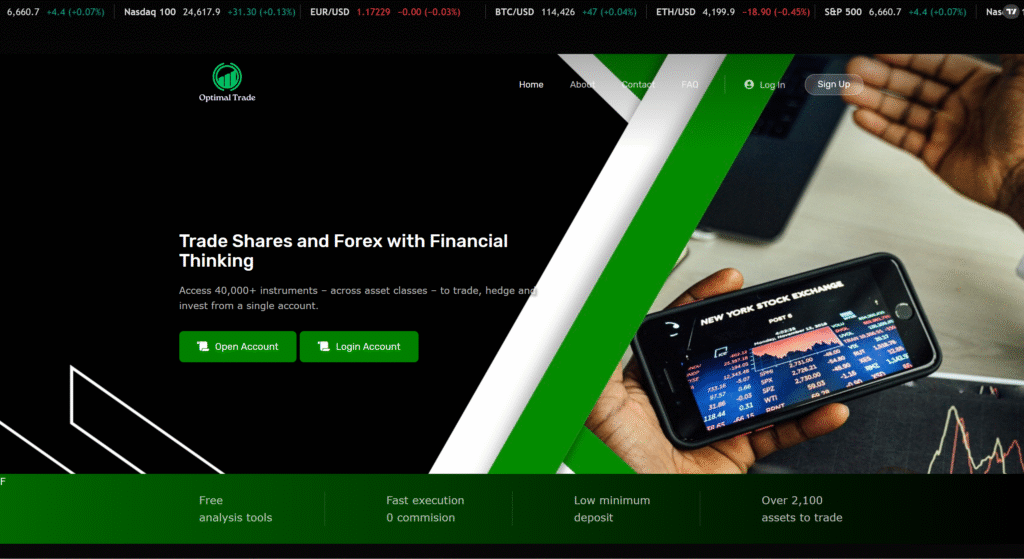
Conclusion
OptimalTrade (optimaltrd.org) stands out as a striking case of a dangerous platform masked under the guise of a financial service. The FCA’s decision to place it on its unauthorized firms list serves as a strong alarm bell. That step is not lightly taken: such warnings are reserved for entities believed to operate without the oversight and protections demanded by law.
The absence of regulatory authorization means clients are deprived of the most fundamental protections in the financial ecosystem: no recourse through the Financial Ombudsman and no access to the FSCS safety net. Those institutional safeguards exist precisely to protect honest investors from fraud or business failure and OptimalTrade excludes itself from them by being unauthorized.
Even more concerning is the possibility that the address and contact information provided by OptimalTrade are misleading or entirely false. The FCA warns explicitly that firms on its warning list may use incorrect postal addresses, emails, or telephone numbers that belong to other businesses or are staged.
Opaque ownership, the adoption of privacy services, and shifting contact points all contribute to a cloak of anonymity that helps the operators evade accountability. A legitimate firm would have consistent, verifiable corporate records, audited statements, and transparency in structure.
The promotional tactics used by scam platforms rely heavily on emotional triggers: promise of untold profits, pressure to act quickly, suggestions of exclusivity, and claims of zero downside. In reality, financial markets always involve risk and when someone claims otherwise, it’s a cue to dig deeper.
Withdrawal complications are perhaps the cruelest twist. When users finally try to claim their money, they face walls: sudden “fees,” sudden identification demands, stalled responses, and outright refusal. Without regulatory oversight, victims of such treatment often find themselves powerless.
What makes cases like OptimalTrade more insidious is their alignment with the same blueprint used by many fraudulent schemes around the world. Regulatory bodies globally have documented these patterns over years—unauthorized promotion, falsified data, withdrawal blockages, and deceptive marketing. OptimalTrade’s presence on the FCA’s warning list confirms it fits that template.
If you suspect you’ve encountered OptimalTrade—or if this platform has approached you—here’s what to do:
- Don’t deposit anything. With an unauthorized firm, you take all the risk.
- Attempt to verify legitimacy. Use the FCA firm checker (for UK cases) or your local regulator’s register. If it’s not listed, that’s a red flag.
- Document any interaction. Save emails, screenshots, deposit details, and communications.
- Test a minimal withdrawal. If you can’t retrieve a small amount, that’s a sign of blockage.
- Share experience & warn others. Post in forums, complaint sites, or social media to raise awareness.
- Report to regulators. In the UK, report to the FCA; in other countries, report to your local financial authority or consumer protection agency.
In this modern age, with technology enabling both opportunity and deception, your best defense is vigilance. A polished website or persuasive narrative cannot replace regulation, audit, and transparent accountability. When a platform cannot prove its legitimacy, walk away.
Your awareness is your strongest defense. Protect your capital by staying skeptical, doing your homework, and avoiding platforms like OptimalTrade that operate under a veil of secrecy.



